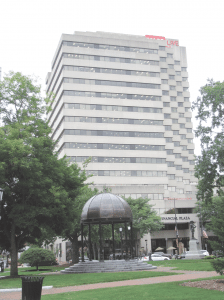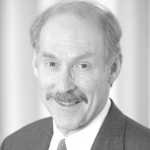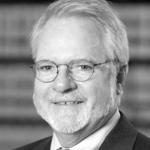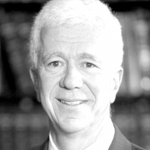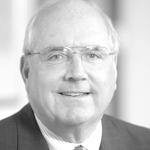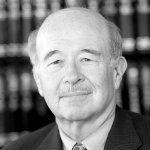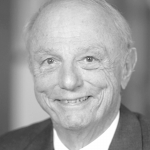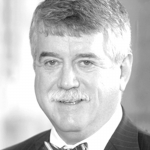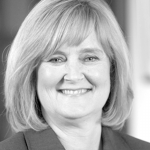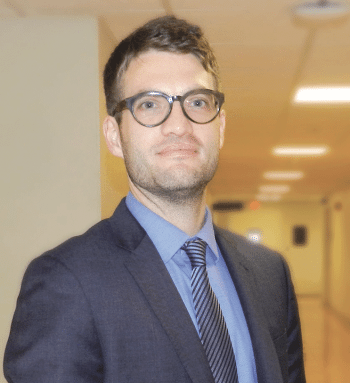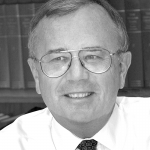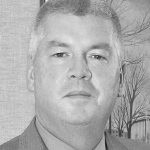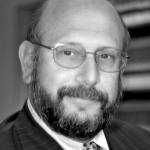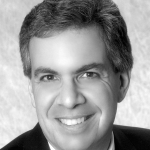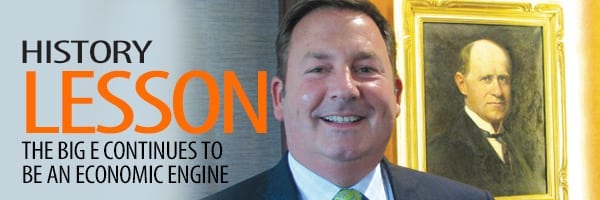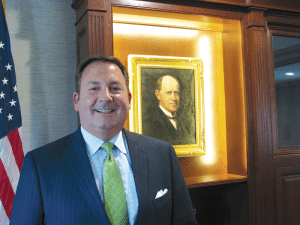Doctors Express Forges Partnership with Large Practice Group
WORCESTER — Doctors Express, the largest independent urgent-care provider in the Commonwealth, announced a partnership with one of the largest independent cooperative physician groups, the Central Massachusetts Independent Physicians Assoc. (CMIPA). This first-of-its-kind partnership will offer more resources for patients, better communication between providers and patients, as well as continuity of care. Doctors Express operates under parent company Medvest, LLC, which serves as the master developer of the urgent-care franchise throughout Massachusetts, Maine, New Hampshire, and Vermont. In particular, this will be an opportunity for patients in Worcester to find accessible and affordable care. Doctors Express and CMIPA plan to launch their first site in Worcester (115 Stafford St., late spring) and another Worcester location (address and date to be announced shortly). This announcement comes on the heels of a successful partnership between Doctors Express and the Steward Health Care System, based in the Greater Boston area. Through the partnership, urgent care provided by Doctors Express is now available to all Steward patients. As Doctors Express continues to grow with more locations, affiliations between urgent-care providers and major medical systems is the way of the future, said Jim Brennan and Rick Crews, CEO and president, respectively, of Medvest, LLC. “Our partnership with CMIPA continues the objective at Medvest to redefine how patient care is delivered,” said Brennan. “We are partnered with Steward Health Care System, the largest fully integrated community care organization and community hospital network in Eastern Massachusetts, and now CMIPA, one of the largest physician cooperative groups in the Commonwealth of Massachusetts.” Existing urgent-care locations have not completely satisfied the need for affordable and accessible care, said Gail Sillman, CEO of CMIPA. “We thought about setting up our own urgent-care center while evaluating our options. We even hired a consultant and became familiar with all the urgent-care providers nationally and locally.” With the help of a consultant, Sillman identified Doctors Express as the most viable option. “Together we saw the benefits of a true partnership where other urgent-care providers did not,” she said. “Doctors Express will honor our patient relationships and extend patient care on nights and weekends for a true, mutually beneficial partnership. Furthermore, Doctors Express has the name brand and market recognition that we were looking for, largely due to the quality of their patient care.” Doctors Express currently has Massachusetts locations in Braintree, Burlington, Dedham, Malden, Marlboro, Natick, North Andover, Saugus, Springfield, Waltham, Watertown, and West Springfield, with several new locations in development. In addition to the two Worcester locations to be opened this year, the company plans to open a location in New Bedford later this month. The Marlboro location is the most recent addition to the Massachusetts-based operations of Doctors Express, having opened on Dec. 5 under the leadership of Managing Director Bing Yeo.
UMass Amherst, Amazon.com Create Virtual Bookstore
AMHERST — UMass Amherst has contracted with Amazon.com to replace its traditional on-campus textbook store with a virtual bookstore expected to save students about 30% compared with current prices on course materials and provide free, one-day shipping to the campus and nearby communities. This will be Amazon’s first online university store in the Northeast and its third nationwide, with potential annual savings of $380 per student. “We know students struggle with the high cost of textbooks and other course materials, and they have been moving to online purchasing. We are delighted to help them get the most competitive prices and first-rate service,” said James Sheehan, UMass Amherst’s vice chancellor of administration and finance. “By seamlessly linking our online campus information system to Amazon, we will make it convenient as well as economical for students to get the items they need for their classes, delivered in one day with no shipping charge to campus and nearby addresses.” Beginning in May, students will be able to order new, used, rental, and digital textbooks and other course materials through Amazon or through personalized links in SPIRE, the university’s online student-information system. To make finding UMass textbooks easier for students, Amazon will integrate relevant course and section information on customized Amazon product pages. In June, Amazon will also open a staffed customer pick-up and drop-off location in the Lincoln Campus Center. For several years, students have been turning from traditional textbook stores to online sources to save money. The university’s five-year contract with Amazon will accelerate the online-purchasing trend and save UMass Amherst students money, particularly through free shipping either to campus or to addresses in Amherst, Hadley, Northampton, Pelham, South Deerfield, and Sunderland. UMass Amherst officials said Amazon was chosen from six companies that submitted proposals because of its low prices and its ability to deliver superior customer service. Based on a sample of more than 1,500 course materials used in UMass Amherst classes during the 2014 spring semester, Amazon estimates it can offer UMass students a savings of 31% versus current bookstore prices, or around $1.4 million based on sales of textbooks at the existing UMass Bookstore. The College Board estimates that a student at a four-year state university spends $1,225 per year on textbooks and supplies, but that number varies across courses of study. Based on this rough estimate, UMass Amherst students could save about $380 annually.
Atlantic Fasteners Moves to Larger Facility
AGAWAM — Atlantic Fasteners has moved to a 44,500-square-foot facility in Agawam, bringing all employees under one roof. The 100%-employee-owned company, which sells industrial and aerospace fasteners and supplies nationwide, previously operated out of three locations in neighboring West Springfield. The new facility has the capacity to hold four times the company’s current inventory and accommodate 25% more office employees. It includes a 22-foot pickup counter, complete with 17 technical fastener wall charts to help customers with measuring fasteners, identifying head styles, and other important information. The ISO 9001:2008 and AS9120-certified firm was founded by Western Mass. businessman Patrick O’Toole in 1981. He sold the company to his employees in 2005.
WSU Online Programs Lauded by U.S. News
WESTFIELD — Westfield State University led Massachusetts’ state universities and placed in the top 30% out of 214 schools in U.S. News & World Report’s 2015 “Best Online Education Programs” rankings. Westfield State’s official ranking was 58 out of 214 in the category of online-education bachelor’s programs. “We are committed to finding new ways to expand access to a high-quality college education,” said Elizabeth Preston, president of Westfield State University. “Offering online access to our academic programming allows us to support the needs of students who might not otherwise be able to take advantage of the educational opportunities we offer.” Westfield State has offered online classes since 2002 and currently offers six online bachelor’s-degree-completion programs, in business management, criminal justice, liberal studies, history, sociology, and psychology. Evolving the program has been key to its success and expansion. Last year, Westfield State signed the MassTransfer Plus agreement that allows students who have completed an online associate’s degree at Holyoke Community College (HCC) to transfer to the university’s online bachelor’s-degree program, making it possible for them to complete a four-year degree fully online. The MassTransfer Plus agreement builds on the growing number of fully online degree programs available at HCC and Westfield State, as well as the institutions’ determination to make it easier for Massachusetts residents to obtain an education and move into higher-paying, in-demand career fields.
VertitechIT Launches New, Interactive Website
HOLYOKE — With sales at an all-time high, a modern headquarters, and a new, national business alliance focused on IT network infrastructure and unified communications, VertitechIT is celebrating with the launch of its new, interactive website, www.vertitechit.com. The site uses humorous, black-and-white photography and poignant headlines to draw in visitors, poking light fun at what can be a very staid and highly technical profession. “IT industry websites tend to be rather formulaic,” said VertitechIT Principal Partner Greg Pellerin. “It was important for our new site to reflect our corporate culture, one that promotes fun and creativity along with cutting-edge technical expertise.” The privately held company, which caters to the business and healthcare industries, just concluded its most successful year ever and recently moved into its new national headquarters in a converted 19th-century paper mill in Holyoke. VertitechIT also recently announced the formation of a national IT-solutions coalition with Microsoft platform provider Software Logic and unified communications expert Partner Consulting. The new Stability Alliance (www.stabilityalliance.com) is focused on building IT network infrastructures that allow businesses and healthcare systems to increase capacity, reduce costs, and improve efficiency.
SC Recognized for Community Engagement
SPRINGFIELD — Springfield College has been recognized by the Carnegie Foundation as one of a select group of colleges and universities throughout the country to earn its community-engagement classification. This classification recognizes Springfield College for its curriculum, which involves students and faculty addressing community needs, as well as outreach and partnerships that benefit the external community and the campus community. “This classification is highly respected and valued by the higher-education community,” said Springfield College Provost and Vice President for Academic Affairs Jean Wyld. “The essence of a Springfield College education is preparing students for careers and personal lives that improve the lives of other people, and this classification attests to that mission.” Springfield College is one of 361 institutions that now hold the community-engagement classification. This honor represents a higher-education institution’s excellent alignment among mission, culture, leadership, resources, and practices that support dynamic and noteworthy community engagement.
Springfield JCC Receives Grant for Wellness Project
SPRINGFIELD — The Springfield JCC Kehillah Special Needs Department’s Fitness Buddies Program is the recipient of a $10,000 grant from Ronald McDonald House Charities of Connecticut & Western Mass. for a wellness project that will significantly improve quality of life for young people with special needs. Recognizing the need in the Greater Springfield area for a fitness center with adapted equipment for teens with special needs, the JCC established a Fitness Buddies program with seed money from the Doug Flutie Foundation in 2013. As the popularity of the program increased, additional specialized equipment was needed to accommodate individuals with Down syndrome, Williams syndrome, and autism-spectrum disorders. Ronald McDonald House Charities stepped in to underwrite the cost of two Expresso S3Y youth bikes, which are safer than a conventional treadmill or elliptical machine. This type of bike is also being used in a pilot program with Harvard School of Public Health. Adding modified equipment puts special-needs individuals on a par with their friends and gives them access to aerobic and fitness equipment that otherwise would be excluded from their workout. “Innovations such as these accessible bikes for teens and young adults with special needs opens up yet another opportunity for profound self-development — in this case, exercising in a typical fitness center,” said Stocky Clark, executive director of Ronald McDonald House Charities of Connecticut & Western Mass. “RMHC is honored to partner with the JCC to bring this innovation to individuals with a range of special needs participating in the Kehillah Special Needs Department of the JCC.” Increased social interaction between the special-needs community and general members helps create healthy relationships and empowers individuals with special needs. Best Buddies matches teens and young adults who have social challenges with teens and adults in the community. Together, they work out at the Springfield JCC, and participants make new friends while learning healthy habits. Research shows that exercise yields a range of physical and mental-health benefits for children. The Springfield JCC serves the Greater Springfield and Northern Conn. communities, offering hundreds of programs for all ages with a strong commitment to individuals with special needs.
WMECo to Rebrand as Eversource Energy
SPRINGFIELD — Western Massachusetts Electric Co. (WMECo) announced it will undergo a corporate rebranding, complete with a new name, Eversource Energy. The change will become official on Feb. 2. All subsidiaries of Hartford-based Northeast Utilities will take the new name, including WMECo, NSTAR, Connecticut Light and Power Co., Public Service Co. of New Hampshire, and Yankee Gas Services Co. Tom May, chairman, president, and CEO of Northeast Utilities, stated in a press release that “consolidating our brand was the obvious next step for us as we continually strive to improve energy delivery and customer service to our 3.6 million electricity and natural-gas customers across the region.”
Real Pickles Wins Good Food Award
GREENFIELD — Dan Rosenberg and Addie Rose Holland of Greenfield-based Real Pickles joined top artisan food producers from around the country on Thursday for the Good Food Awards ceremony at the Palace of Fine Arts in San Francisco. Real Pickles was awarded a top honor at the event for its organic beet kvass, a fermented beverage traditional to Eastern Europe. “One of our goals at Real Pickles has always been to promote the flavor and health benefits of fermented foods,” said Rosenberg. “Receiving a national honor like the Good Food Award helps us get this message out.” Real Pickles uses the traditional pickling process — without vinegar — to make its line of fermented vegetables. The organic beet kvass is made with certified organic vegetables from northeast family farms, as are all of the company’s products. The kvass is available by the bottle from area retailers, including Green Fields Co-op Market in Greenfield, River Valley Co-op Market in Northampton, and Whole Foods Market in Hadley. The Good Food Awards are given to artisan producers in five regions of the U.S. in 11 categories — beer, charcuterie, cheese, chocolate, coffee, confections, honey, oil, pickles, preserves, and spirits — and highlight outstanding American food producers who are making food that is exceptionally delicious and supports sustainability and social good.
MassMutual to Continue Sponsorship of Hampden County Legal Clinic
SPRINGFIELD — The Hampden County Bar Assoc. announced that MassMutual will be continuing its sponsorship of the Hampden County Legal Clinic for 2015 with a grant of $20,000. The grant will help carry on the expansion of pro bono activities as well as the promotion of the clinic. MassMutual has been the Hampden County Legal Clinic’s exclusive sponsor since 2012, not only providing financial support but also taking a leadership role in developing new pro bono opportunities and encouraging its in-house lawyers, paralegals, and staff to participate in the clinic’s programs. “Sponsoring the Hampden County Legal Clinic enhances access to justice for a significant number of local residents, ultimately benefiting the Greater Springfield community as well,” said Mark Roellig, executive vice president and general counsel. “We are proud to continue this relationship and hope to see growing numbers of legal volunteers donating their time through the clinic’s programs.”











